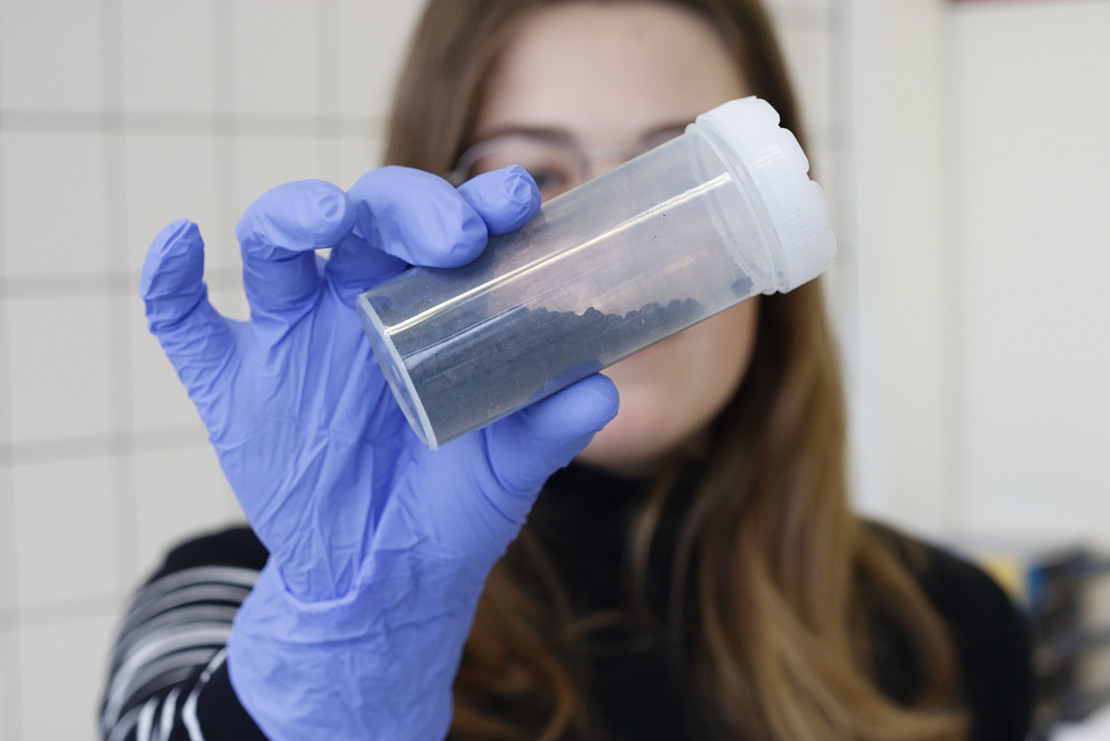Meldung
From potato peel to wastewater purifier
 Image: Uni Kassel.
Image: Uni Kassel."What drives us is protecting our waters from pollutants. We want to make this as climate-neutral as possible," emphasizes Prof. Dr.-Ing. Tobias Morck, Head of the Department of Urban Water Management. He is the spokesperson for the "CirCles" research training group, which began its work at the end of last year. Around 8.5 tons ofCO2 equivalents are produced per ton of activated carbon from fossil raw materials. The production of biogenic activated carbon from potato peelings, food scraps or other kitchen waste would solve this dilemma.
Activated carbon is a highly porous carbon material to which pollutants in wastewater "stick" (in technical terms, this is called adsorption). There are tried and tested processes for producing it from coconut shells or wood instead of fossil raw materials - but this is hardly an option in Central European cities. However, if this thermal conversion could be adapted to biowaste, it could close urban carbon cycles.
In the Research Training Group, four doctoral students are therefore using Kassel as an example to investigate which waste and which process steps can achieve the best results. They are working together with the municipal waste and wastewater industry. The pollutants that are to be removed from the wastewater include, for example, residues of pharmaceuticals such as diclofenac or corrosion inhibitors used in industry.
The "CirCles" project is funded by the University of Kassel and flanks the recently established Kassel Institute for Sustainability. In the medium term, it is intended to provide further approaches to sustainability research. It is being carried out by the departments of Urban Water Management, Sustainable Marketing, Resource Management and Waste Technology as well as Grassland Science and Renewable Resources at the University of Kassel. Stadtreiniger Kassel, Abfallentsorgung Kreis Kassel, KASSELWASSER and the Kassel Environment and Garden Office are involved as practical partners.
Press contact:
Sebastian Mense
University of Kassel
Communications, Press and Public Relations
Tel.: +49 561 804-1961
E-mail: presse[at]uni-kassel[dot]de
www.uni-kassel.de